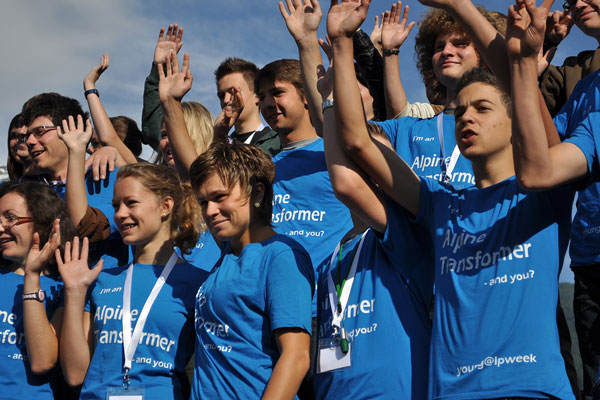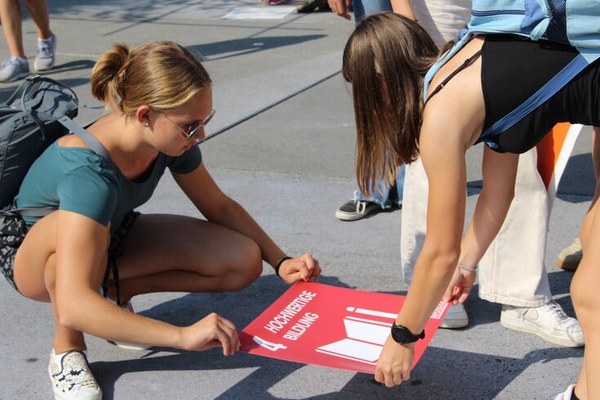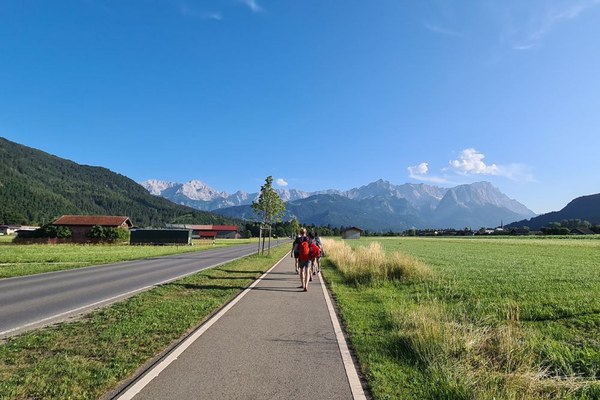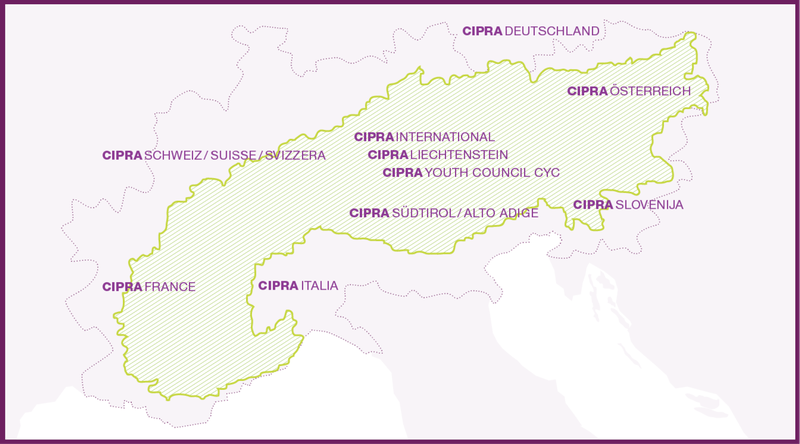Laura Haberfellner, CIPRA International Lab
Innovation to counter emigration
Emigration and the brain drain in the Alpine region: a new EU project involving CIPRA aims to counteract this trend. It is testing innovative governance models to strengthen mountain regions and create a win-win situation for regions of origin, destinations and young emigrants.
Who is CIPRA?
Find out more!
More articles
alpMedia
Strange but true!
... Winter ade, scheiden tut weh – Winter must go, parting hurts, as the old German folk song runs. The little Austrian community of Ramsau is now ignoring this piece of wisdom, as well as the laws of nature.

alpMedia
Municipal network for nature protection
Nature knows no bounds. Therefore, 25 members of the “Alliance in the Alps” network of municipalities are now working together to ensure greater biodiversity and quality of life. Below is a summary of the aims of the international dynAlp-nature projects.

alpMedia
Youth participation in the Alps: a situation report
Where are young people involved in decision-making? How clearly are their voices heard? In its report CIPRA gives a first Alpine-wide view of the participation of young people.

alpMedia
Point of view: Second homes – no end in sight
By voting “Yes” in 2012 in the referendum “No to the unrestricted building of second homes”, Swiss voters expressed their desire for new tourism policies. Dominik Siegrist, President of CIPRA International, expresses doubt that the population’s demand canactually be implemented.
Events
There is nothing to see here at the moment. Why not take a look at the other countries?
Projects

CIPRA International
Ars vivendi
[Project completed] How can the Sustainable Development Goals (SDGs) be learned and taught? In the project «ars vivendi» a didactic tool for the Global Agenda 2030 is being developed.

CIPRA Deutschland | CIPRA France
DINAMO
[Project competed] In many rural areas of the Alps, public transport services are inadequate for daily needs and tourism development. In some remote mountain regions, this is one of the reasons why there is a considerable amount of car traffic, especially on weekends, public holidays and during rush hours. There are various reasons for this, including the high cost of public transport solutions due to low population density, inadequate public transport options (such as timetables, accessibility, connectivity, travel time and costs) and political and social preferences in favour of private motorised transport.

CIPRA International Lab
LISTEN
The LISTEN project is analysing the use of space in suburbs on the basis of three pilot regions in Belgium, Sweden and Austria. CIPRA Lab GmbH is working together with partners from research and regional stakeholders.

